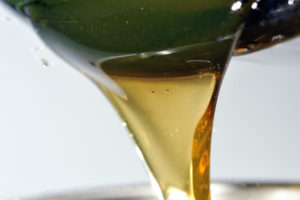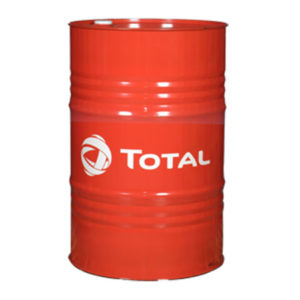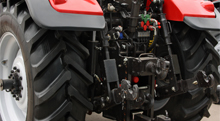What are Hydraulic Oils?
Hydraulic Oil is the medium by which energy is transferred to all hydraulic systems. However, the tasks performed by hydraulic oil go much further than the transfer of power. Although it is the core purpose of hydraulic fluid, it is also valuable in four secondary functions: transferring heat, removing contaminants, sealing and lubrication.

Transferring Heat
Hydraulic machines produce a huge amount of additional heat during regular operations, often caused by insufficiencies of the components themselves, such as pumps and motors. Minus a way to carry heat away from these components, they could easily overheat with resulting damage to seals and internal components, especially as a result of low local viscosity. As engine oil makes its way back to the reservoir, it often travels through a cooler to help maintain optimum temperature ranges before it is pumped back out to the system. Equally, hydraulic fluid can carry heat into a system during cold starts, when needed.
Removing Contaminants
If hydraulic systems with closed-loops didn’t bleed off fluid at a precise rate, contamination would quickly build to critical and harmful levels. Due to the damage heat can cause, it can be considered a form of contamination, but as well as transferring heat, hydraulic oil also carries particles and water away from sensitive components through filters or other conditioning devices. This can then be cleaned up and returned to the circuit. Oil without a driving force would remain within sensitive components, allowing essentially trapped contamination to slowly destroy its surroundings.

Sealing
Although most would consider hydraulic oil as being a fluid that the pieces of hardware seal against, hydraulic oil (especially oil) actually provides sealing within areas such as pumps, valves and motors. For example, a spool valve has a seal at each end that stops oil from escaping the valve, but each notch on the spool is sealed from the adjacent cavities by only the tight metal-to-metal tolerances and the oil’s surface tension and resistance to shearing.
Lubrication
Lubrication is needed in the majority of hydraulic components to protect internal parts from wearing or damage as a result of metal-to-metal friction. Oil provides full-film lubrication between moving parts, such as the slippers and lens plate of a piston pump. Without the lubricating properties of oil, hydraulic systems would be incredibly inefficient and unreliable.
How Common are these functions?
These functions are common to all types, excluding some water-based fluids that require unique design attention during engineering. However, the majority of machines use refined or synthetic oil, formulated to detailed levels and tested for important properties like viscosity, pour point and viscosity index. But these three properties are often considered when choosing a fluid for a specific application, based on maintaining an exact viscosity throughout a particular set of machine operating conditions. For example, if ambient temperatures are low, you would need an oil with lower rated viscosity and a low pour point. If your machine sees varying temperature ranges, a high viscosity index is very important. Viscosity Index describes an oil’s ability to maintain its viscosity over a wide temperature range.
It is also extremely important to consider the viscosity requirement of the mechanisms in your hydraulic system. A piston pump, for example, may require between 16 and 40 centistokes, which is a description of kinematic viscosity.
Hydraulic oil is made with other important properties, but these tend to be common regardless of brand, viscosity or application. Hydraulic oil has a package of chemical additives for helping the performance of both the oil and the components of the hydraulic system. These additives can improve a number of functions including the foaming resistance of the oil, corrosion/rust resistance and the water-retention properties. The additive package separates low and high-quality fluids, and additives will also improve the viscous properties of the oil.
The Azolla ZS Range
Azolla ZS is the latest range in high performance anti-wear hydraulic oils. Azolla ZS is designed for use in all kinds of hydraulic systems operating under severe conditions. These systems include machine tools, mould injection machines, presses and
other industrial or mobile equipment to name but a few. This high-quality hydraulic oil incorporates the most modern additive technology and offers high protection against waear insuring maximum equipment life. Other key benefits of this range include:
- Superior thermal stability avoiding formation of sludge even at high temperature.
- Very good oxidation stability ensuring a long service life of the fluid.
- Remarkable filterability even in the presence of water.
- Excellent hydrolytic stability avoiding filter blocking.
- Excellent protection against rust and corrosion.
- Good anti-foam and air release properties by using silicon free components.
- Good demulsibility ensuring rapid water separation
- Reduced maintenance and operating costs

To find out more about this cutting-edge product, contact Finol today at 01-455 5484 or go to www.finol.ie/contact-us to send your enquiry directly to our dedicated technical team.

